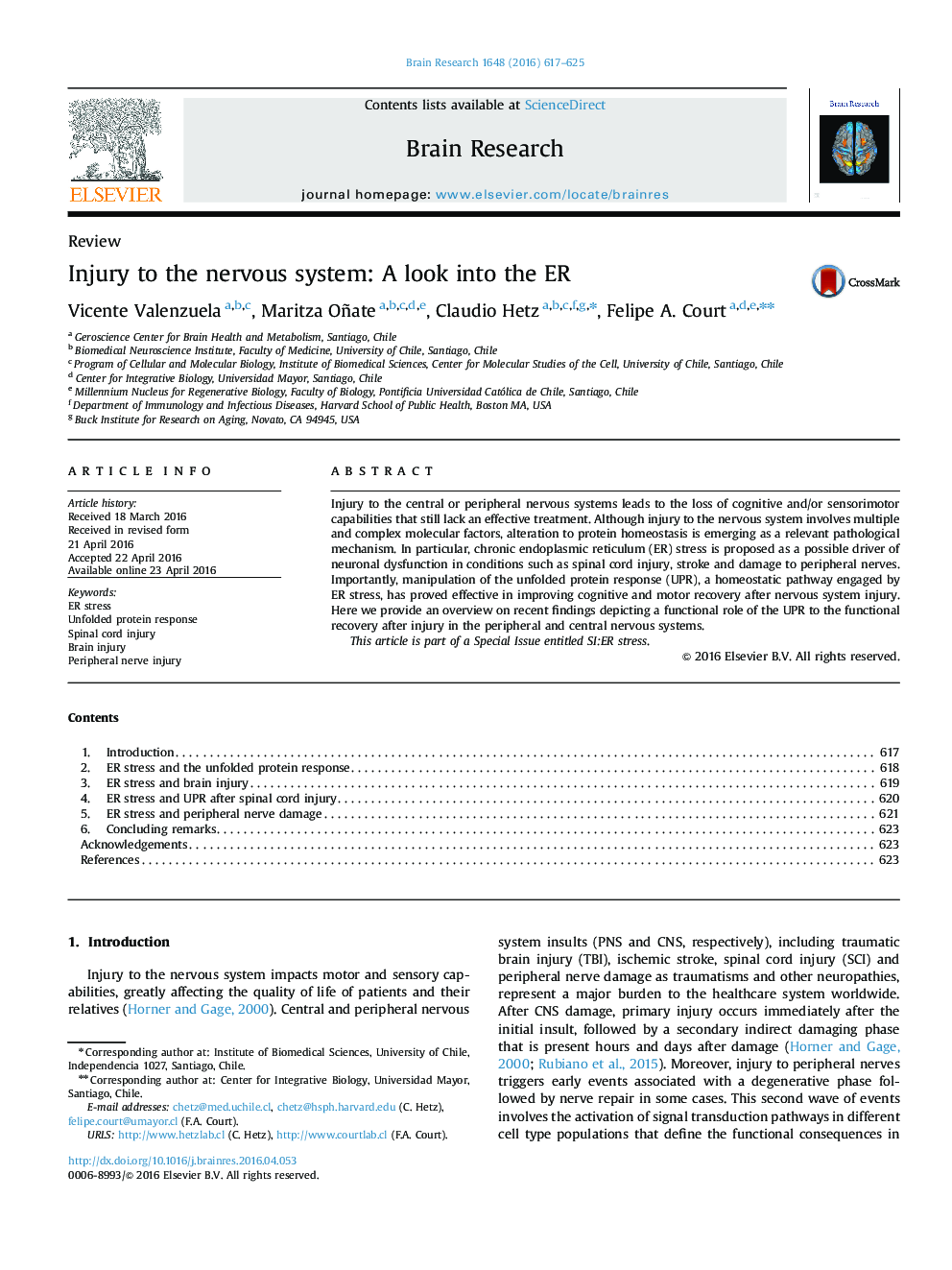| Article ID | Journal | Published Year | Pages | File Type |
|---|---|---|---|---|
| 6262292 | Brain Research | 2016 | 9 Pages |
â¢Injury to the central or peripheral nervous system still lacks an effective treatment.â¢ER stress is emerging as a possible driver for neuronal dysfunction in nervous injury.â¢Activation of the UPR can improve cognitive and motor recovery after injury.â¢Therapeutic strategies to alleviate ER stress by modulating UPR are discussed.
Injury to the central or peripheral nervous systems leads to the loss of cognitive and/or sensorimotor capabilities that still lack an effective treatment. Although injury to the nervous system involves multiple and complex molecular factors, alteration to protein homeostasis is emerging as a relevant pathological mechanism. In particular, chronic endoplasmic reticulum (ER) stress is proposed as a possible driver of neuronal dysfunction in conditions such as spinal cord injury, stroke and damage to peripheral nerves. Importantly, manipulation of the unfolded protein response (UPR), a homeostatic pathway engaged by ER stress, has proved effective in improving cognitive and motor recovery after nervous system injury. Here we provide an overview on recent findings depicting a functional role of the UPR to the functional recovery after injury in the peripheral and central nervous systems.This article is part of a Special Issue entitled SI:ER stress.
